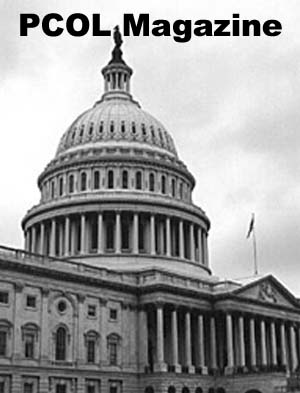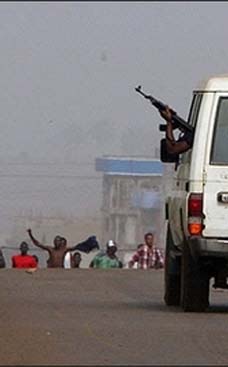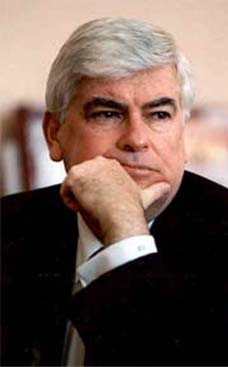
ICASS has not led to efficient delivery of administrative support services by eliminating unnecessary duplication of these services or by streamlining operations to contain costs. From the start of the program, many agencies decided not to subscribe to some ICASS services, opting instead to provide some administrative support services for themselves. When agencies selfprovide these services at overseas posts, it can create duplicative administrative systems that increase overall government costs. While agencies cited affordability concerns, programmatic needs, and control issues as reasons for not subscribing to ICASS services, we found that they rarely provided detailed business cases that rationalize decisions to selfprovide support services. Furthermore, agencies that provide administrative support services (service providers) and those that receive the services (customer agencies) have undertaken few systematic efforts to consolidate or streamline administrative support structures. Officials from State and other agencies reported that few incentives exist for post personnel to contain costs by consolidating or streamlining services, and incentives that do exist are not adequate to overcome organizational disincentives. However, there are a number of efforts under way or in the planning process, both internal and external to ICASS, which may address some of the obstacles that prevent ICASS from operating more efficiently. 2In Washington, we interviewed staff from the U.S. Departments of Agriculture, Commerce, Defense, Homeland Security, Justice, State, and the Treasury; the U.S. Peace Corps; and the U.S. Agency for International Development.
GAO says Actions Are Needed to Increase Efficiency and Improve Delivery of Administrative Support Services at Overseas Offices including Peace Corps
Page 1 GAO-04-511 Embassy Administrative Support System September 7, 2004 Letter
The Honorable Christopher Shays
Chairman, Subcommittee on National Security, Emerging Threats, and International Relations
Committee on Government Reform
House of Representatives
Dear Mr. Chairman:
The U.S. government spent nearly $1 billion in 2003 to provide administrative support services to more than 250 overseas posts worldwide. These costs are divided among more than 50 agencies and subagencies with staff assigned to these posts primarily through the International Cooperative Administrative Support Services (ICASS) costdistribution system. The Department of State (State) has the primary responsibility for operating the system and employs approximately 18,000 workers to provide more than 30 basic administrative support services. A primary purpose for developing ICASS was to achieve greater efficiencies in the delivery of basic administrative support services to federal employees at overseas posts. The system was also intended to ensure that users of overseas facilities receive quality administrative support services, that they each pay the costs associated with the amount of services they use, and that all users have a say in determining how resources are allocated. In light of rising budget deficits, it is important that overseas employees receive administrative support services in the most costeffective manner possible.
Since ICASS was fully implemented in 1998, its performance has not been systematically reviewed.1 Therefore, you asked that we examine (1) whether ICASS has led to efficient delivery of administrative services and (2) whether ICASS is an effective mechanism for providing quality services. To answer these questions, we reviewed ICASS policies and procedures; interviewed headquarters officials from nine departments about customer satisfaction, quality of service, training, cost-containment measures, and 1The Department of State’s Inspector General reviewed the initial implementation of ICASS in 1999, but because the system was so new, its success in accomplishing its goals and objectives could not be assessed. See U.S. Department of State and the Broadcasting Board of Governors, Office of the Inspector General, Audit of the Selection of Service Providers in the International Cooperative Administrative Support Services (ICASS) System, 00-PP-005 (Washington, D.C.: March 2000).
Page 2 GAO-04-511 Embassy Administrative Support System numerous other issues;2 attended meetings of the ICASS Executive Board and the ICASS Working Group in Washington, D.C.; and reviewed global surveys implemented by the ICASS Service Center and State’s Center for Administrative Innovation. In addition, we observed ICASS operations at seven embassies and conducted telephone interviews with staff at an eighth post.3 We conducted our work from April 2003 through August 2004 in accordance with generally accepted government auditing standards. See appendix I for additional information on the scope and methodology used to complete this report.
Results in Brief ICASS has not led to efficient delivery of administrative support services by eliminating unnecessary duplication of these services or by streamlining operations to contain costs. From the start of the program, many agencies decided not to subscribe to some ICASS services, opting instead to provide some administrative support services for themselves. When agencies selfprovide these services at overseas posts, it can create duplicative administrative systems that increase overall government costs. While agencies cited affordability concerns, programmatic needs, and control issues as reasons for not subscribing to ICASS services, we found that they rarely provided detailed business cases that rationalize decisions to selfprovide support services. Furthermore, agencies that provide administrative support services (service providers) and those that receive the services (customer agencies) have undertaken few systematic efforts to consolidate or streamline administrative support structures. Officials from State and other agencies reported that few incentives exist for post personnel to contain costs by consolidating or streamlining services, and incentives that do exist are not adequate to overcome organizational disincentives. However, there are a number of efforts under way or in the planning process, both internal and external to ICASS, which may address some of the obstacles that prevent ICASS from operating more efficiently. 2In Washington, we interviewed staff from the U.S. Departments of Agriculture, Commerce, Defense, Homeland Security, Justice, State, and the Treasury; the U.S. Peace Corps; and the U.S. Agency for International Development.
3We conducted fieldwork at U.S. embassies in Bern, Switzerland; Cairo, Egypt; Dakar, Senegal; Dar es Salaam, Tanzania; Lima, Peru; San Jose, Costa Rica; and Vienna, Austria; and telephone interviews with U.S. embassy staff in Conakry, Guinea. In Vienna, we also conducted fieldwork at the U.S. missions to the International Organizations in Vienna, and the Organization for Security and Cooperation in Europe.
Page 3 GAO-04-511 Embassy Administrative Support System ICASS is a generally effective mechanism for delivering quality administrative support services; however, obstacles exist that prevent the system from fully achieving its goals. We found that agencies generally approve of the quality of ICASS services, but the level of satisfaction is difficult to quantify. We also found that ICASS is simple and transparent enough for customers to understand its basic structures. Moreover, agency officials at posts and headquarters agree that ICASS is more equitable than the cost-sharing mechanism it replaced. Nevertheless, it is difficult to determine the extent to which ICASS is meeting some of its stated strategic goals because they lack indicators to gauge progress. Moreover, despite a requirement to annually review service performance standards, posts seldom do so. Other obstacles to maximizing the system include limits to overseas staffs’ decision-making authority, which can diminish “local empowerment” by affecting their ability to make decisions on the best use of a post’s resources. In addition, customers and service providers do not take full advantage of ICASS training and other available information resources, which further limits the system’s overall effectiveness. This report contains recommendations to the ICASS Executive Board, which is chaired by the Assistant Secretary of State for Administration and includes equivalent-level officers from participating agencies, to (1) eliminate duplicative administrative support structures where possible; (2) contain costs by reengineering processes and seeking innovative managerial approaches; (3) develop strategies to improve ICASS accountability; and (4) ensure that all ICASS participants receive detailed training on their roles, responsibilities, and authorities. We are making our recommendations to the ICASS Executive Board because it is the highest level ICASS policy-making body. As such, it has the responsibility for addressing worldwide administrative service improvements and cost reductions.4
We received written comments on a draft of this report from the ICASS Executive Board and nine agencies that are primary participants in ICASS—the Departments of State, Defense, Justice, Agriculture, Commerce, Homeland Security, and the Treasury; the U.S. Agency for International Development; and the U.S. Peace Corps. (See apps. IV-XIII.) The ICASS Executive Board said it plans to take a more active role in the overall management of ICASS. The board agreed that action was needed to 4U.S. Department of State, Foreign Affairs Handbook, 6 FAH-5 H-501 (Washington, D.C.: April 1998). eliminate duplication, contain costs by reengineering business processes, and improve accountability. The agencies generally agreed with our recommendations. State emphasized the importance of eliminating wasteful duplication, whereas other agencies emphasized the importance of containing costs. The non-State agencies believed that our report focused too much on eliminating duplication and not enough on containing costs of support services billed to them. As a result, we made modifications to the report to stress that elimination of unnecessary duplication and containment of costs were equally important. We believe that implementation of our recommendations will help the executive branch both reduce wasteful duplication and contain costs while improving overall management of the ICASS system.


















